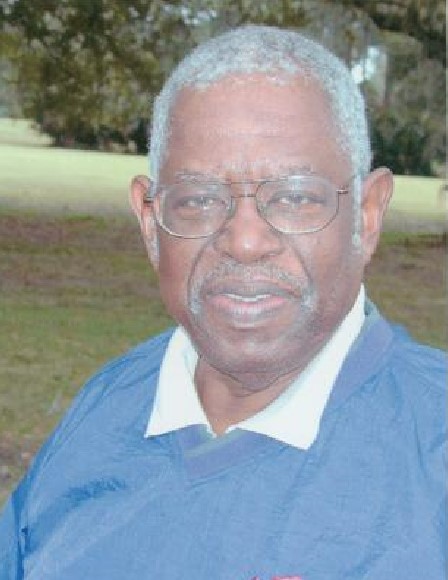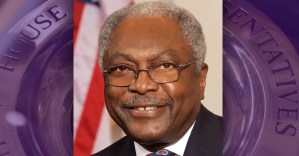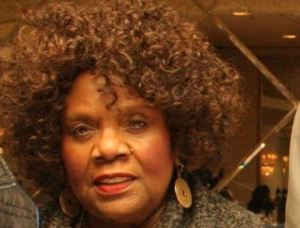By Helen Bezuneh,
Special to the AFRO
As a young man growing up in racially segregated Florida in the 1950s, joining the newly racially integrated army services sounded more than appealing to James W. Allen. While serving in the Korean War, Allen received a rare taste of racial integration, enriching him with the spirit to, when he returned home, promote racial equality and the betterment of veterans’ lives.
“I came in the military shortly after they integrated the services. Harry Truman had announced that he wanted all of the services integrated. It was a trial of things so to speak when I came in,” Allen said in an audio interview featured in the Library of Congress.
They weren’t sure whether Blacks had leadership skills or anything like that. Shortly after I finished basic training I was allowed to go to leadership school. I barely made it, and they explained to me that I was a little slower than the Whites in the class,” Allen continued. “ They didn’t think that I was basically slow, it seemed like I was slow for a reason. And you know, when you’re brought up in a segregated environment you think that you shouldn’t go ahead of the Whites. They determined that was the problem.”
Over the course of his career in the service, Allen went on to achieve the rank of first sergeant and earned the Bronze Star for his contributions at the Saigan Area Drug Rehabilitation Service for enlisted soldiers. Allen is one of many veterans whose oral histories are featured in the Veterans History Project (VHP) at the Library of Congress. The VHP seeks to collect and preserve the rich and diverse stories of veterans like Allen that remain untold. The VHP increased their urgent call for veterans, and families of veterans, to contribute their stories to this ever-expanding initiative after the 70th anniversary of the Korean War on July 27.
“The Veterans History Project is really your opportunity to engage with the veteran in your life,” said Monica Mohindra, director of the project. “Veterans are amongst us and we may or may not even be aware of it…Those 117,000 individual stories really help to explain the human scale of service, of conflict, of sacrifice and history.”
Established by Congressional legislation in 2000, the VHP collects oral histories of U.S. military veterans and family members of veterans who died as a result of their service. The collection also houses letters, diaries, photographs and other relevant primary source materials.
The project is especially cognizant of preserving the stories of those who fought in the Korean War, which is often called “the forgotten war,” taking place from 1950 to 1953.
“Part of that has to do with it being bookended by World War II and the Vietnam War,” said Mohindra. “So I think they were so massive in their own capacities and such large conflicts. But also [the war’s] adjacency to the Silent Generation, I think there’s something to be said there. The forgotten war or not, it is really deeply relevant to our lives today.”
The Korean War coincided with the desegregation of the U.S. military, making it that much more unique, Mohindra said. President Harry Truman mandated the desegregation of the military in 1948, though his promise took some time before it was actualized. By then, the military already existed as a unique racial space, providing African Americans with the chance to experience race abroad.
“Already in World War II, we know from the collections that we have here, that African American service members were having an expansive sense of life and R&R (rest and recuperation),” said Mohindra. “While they were in Europe, they had opportunities to be more expressively themselves. When they came back to the United States having fought, it was very difficult to come back to racially segregated situations and circumstances and be treated a particular way.”
“Moving forward into the Korean War, this growing sense of discontent and opportunity, when they returned, to expand on the promise, still not 100 percent realized, of desegregation,” she said.
That’s where Allen’s story fits in. If you take a listen to his oral history in the VHP, you’ll learn that, prior to enlisting, he had learned to internalize the idea that he was a second class citizen and that “whites go first.” His time in the war completely shifted his perspective. Allen went on to serve in the Vietnam War and eventually earned a Bronze Star.
While exploring the VHP, you would learn just how unique the Korean War was. In addition to desegregation, the war’s occurrence also aligned with an increasing number of women in service.
You can learn about Fannie Griffin McClendon, who served as part of the 6888 Central Postal Directory Battalion, an all-African American-women military unit. Eventually becoming a squadron commander in the Air force, McClendon spent more than two decades in the military. Listening to the story, you’ll hear about McClendon’s experience in the exceptional 6888 unit, and her complex experience as a Black woman in the military.
The VHP is used by varying communities, including those who want to learn more about veterans they care about, members of congress who use it to connect with constituents or understand more about a policy, teachers, and scholarly research.
For veterans who scarcely talk about their time in service, the project is that much more meaningful, Mohindra said.
“We talk about the seriousness of purpose and what it means to be preserved here at the Library of Congress, literally for posterity, as long as the Republic may survive,” said Mohindra. “What we hear from veterans is really touching stories of how it opened up new avenues in their lives and in their relationships…what we understand from anecdotes is that sense of rest they get from having been placed at the center of their story and listened to with this seriousness of purpose that it is just a life changing opportunity for them.”
Articulating the significance of preserving stories, Mohindra invokes a quote from Maya Angelou: “There is no greater agony than bearing an untold story inside you.”
The VHP is especially important for Black communities, Mohindra said. It’s crucial that we understand the wide range of African American experiences, she said, and hear stories directly from those who experienced them.
Mohindra recalls recently meeting Morgan Freeman, who served in the military for four years. When she thanked him for his service, he remarked that he “didn’t do anything.”
“When you ask a room full of people to raise their hand if they are veterans, lots of those people, African American men and women, women of many different backgrounds, will not raise their hand,” said Mohindra. “I suspect Mr. Freeman wouldn’t have raised his hand.”
“If you then ask the question, who here served in the U.S. military, lots more people will raise their hand,” she continued. “My theory is that if you ask people in a big room to close their eyes and picture a U.S. military veteran…the picture that comes to their mind…probably looks like a young white World War II drafty. And that’s just what we see, because that’s what got put in our heads by what was available in the consumer media.”
“And so we have to work really hard across communities to make sure that we understand better the full spectrum of service,” said Mohindra.
Mohindra implores readers to reach out to the veterans in their lives and record their stories for the VHP. The project additionally welcomes contributions of original photographs, letters, unpublished diaries, memoirs, and journals. The VHP’s website has tips on how to conduct interviews of veterans and how veterans can conduct self-interviews. For more information on how to contribute to the project, check out www.loc.gov/vets.
The post Veterans memorialize their service experience in the Library of Congress appeared first on AFRO American Newspapers .










